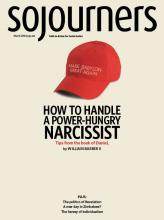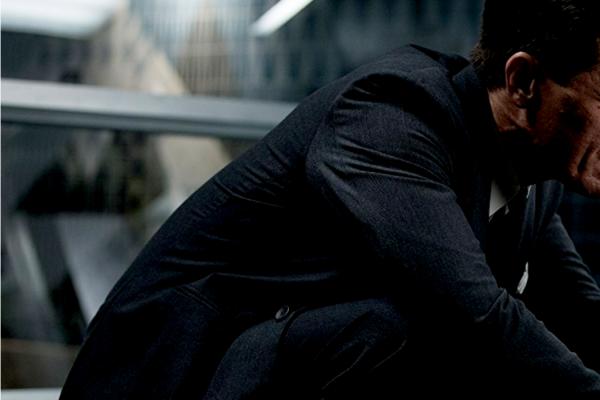I HAVE A SIMPLE view of what makes a movie great: Technical craft and aesthetic vision operating at their highest frequencies come together in service of a story or images that help us live better. How does the movie interact with what Mennonite peace theorist and practitioner John Paul Lederach calls the choice to participate in escalating dehumanization or escalating humanization? In other words, does the movie help us become less human or more? In a narrative film, do the characters’ doubts and loves, the pain they suffer, and the results of their actions leave us with a deeper sense of our own humanity?
No aspect of popular culture more urgently deserves our attention than how “enemies” are presented. What motivates “bad guys,” and how are they dealt with by “good guys”? What side is the audience on? It has been noted by some that every audience watching Star Wars wants to believe that it’s the Rebel Alliance, fighting a titanic battle against an Evil Empire. Some viewers may imagine the Empire is North Korea. Others may imagine it is the U.S. Then, of course, there is the Russian dissident Aleksandr Solzhenitsyn’s clarity: that the line between good and evil runs through every person, not between us.
Read the Full Article

